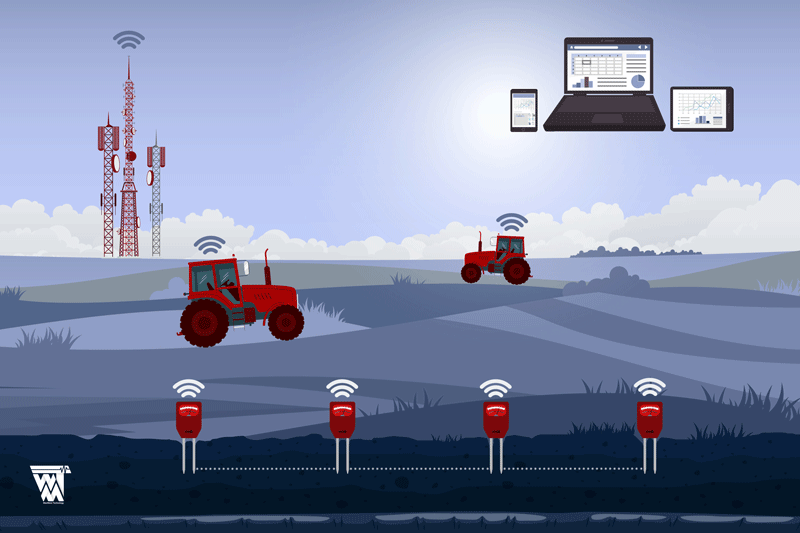Rural connectivity solutions, epitomized by the concept of smart farms, represent a transformative approach to agriculture, harnessing advanced technologies to optimize crop production and resource management in remote areas. Central to the concept of smart farms are sensors meticulously deployed across fields, gathering real-time data on environmental variables like soil moisture, temperature, humidity, and crop health. Additionally, IoT-enabled equipment such as tractors collect valuable data during field operations, creating a comprehensive network of information exchange. This wealth of data is then relayed to base stations or gateway devices for aggregation, before being transferred to cloud-based platforms for storage and analysis, facilitating machine learning and advanced processing.
The benefits of rural connectivity solutions for agriculture are manifold. By providing growers with real-time insights into environmental conditions and crop health, smart farms enable precise and targeted management practices. For instance, by monitoring soil moisture levels, growers can optimize irrigation schedules, minimizing water waste and enhancing water use efficiency. Similarly, early detection of pest infestations or disease outbreaks through remote monitoring enables timely interventions, reducing yield losses and minimizing reliance on chemical inputs, thus promoting sustainable farming practices.
Moreover, rural connectivity solutions empower growers to make data-driven decisions that maximize crop yields and quality. By analyzing historical data and real-time observations, growers can identify trends and patterns informing agronomic practices such as planting density, fertilizer application, and crop rotation. This proactive approach not only enhances productivity but also mitigates risks associated with environmental variability and market fluctuations, ensuring the long-term viability and profitability of farming operations.
Furthermore, the integration of cloud-based platforms and machine learning algorithms enables continuous improvement and optimization of farming practices. Leveraging big data analytics, growers gain deeper insights into crop performance and environmental factors, leading to the development of predictive models optimizing resource allocation and maximizing crop yields. Additionally, cloud-based platforms facilitate collaboration and knowledge sharing among growers, agronomists, and researchers, fostering innovation and driving continuous improvement in agricultural practices.
In summary, rural connectivity solutions, exemplified by smart farms, hold immense potential to revolutionize crop production in remote areas, enhancing productivity, sustainability, and profitability. By providing actionable insights and decision support tools, smart farms enable efficient resource management, improved crop health, and better resilience to environmental challenges, ultimately contributing to global food security and agricultural sustainability.

